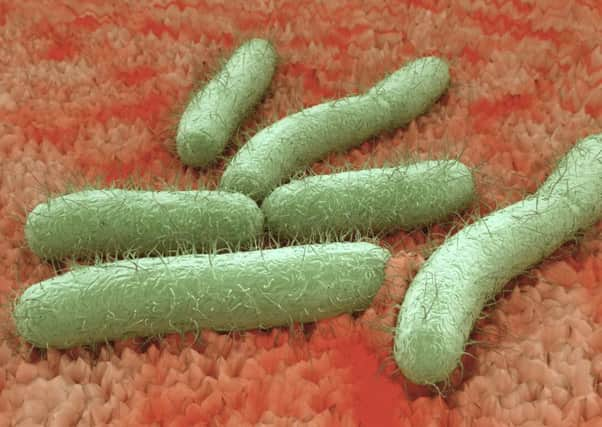Population faces global threat from superbugs


Researchers identified a gene that makes infectious bacteria such as Escherichia coli (E.coli) highly resistant to polymyxins, the last group of antibiotics left after all others have failed.
The discovery in China, described as “extremely worrying” by one scientist, suggests the gene can easily be transferred to bacteria with the potential to cause epidemics.
Advertisement
Hide AdAdvertisement
Hide AdBesides E. coli they include the pneumonia bug Klebsiella pneumoniae and Pseudomonas aeruginosa, which can trigger serious lung, blood and surgical infections.
An E.coli strain showing resistance to the polymyxin drug colistin was isolated from an intensively farmed pig in Shanghai during routine testing.
Scientists found the bug was able to transfer its immunity to the drug to other strains via the mobile gene mcr-1. This led to further tests of bacterial samples collected from pigs at slaughter in four Chinese provinces, and pork and chicken sold in 30 open markets and 27 supermarkets across Guangzhou province between 2011 and 2014.
Bacteria from infected patients at two hospitals in Guangdong and Zhejiang provinces were also tested.
A high prevalence of the resistance gene was found in E.coli bugs isolated from animals and raw meat samples. The gene was also identified in 16 E.coli and K.pneumoniae samples taken from 1,322 hospitalised patients.
Alarmingly, the proportion of samples testing positive for the super-resistance gene increased from year to year, said the scientists.
Edinburgh University’s Professor Nigel Brown, president of the Microbiology Society, said: “This discovery that resistance to colistin can be transferred between bacteria is alarming.
“Although resistance to this important and widely-used polymyxin group of antibiotics has previously been shown, it was generally caused by mutation in individual organisms. Now that it has been demonstrated that resistance can be transferred between bacteria and across bacterial species, another line of defence against infection is in danger of being breached.
“We need careful surveillance to track the potential global spread of this resistance.”